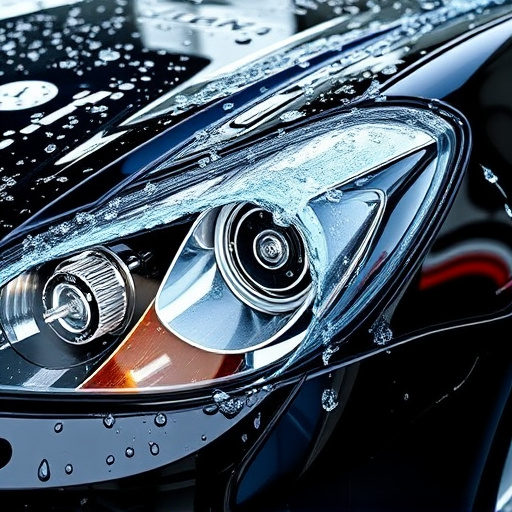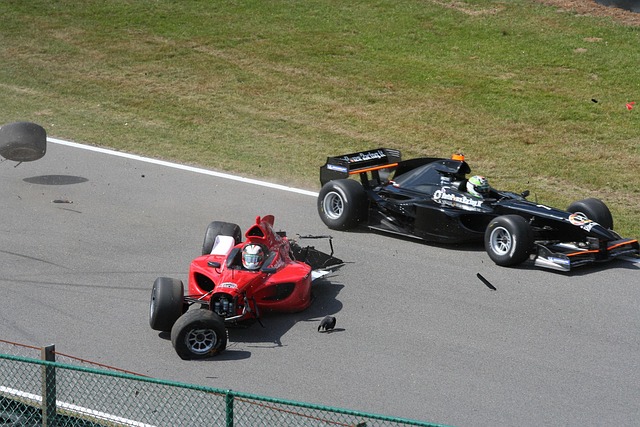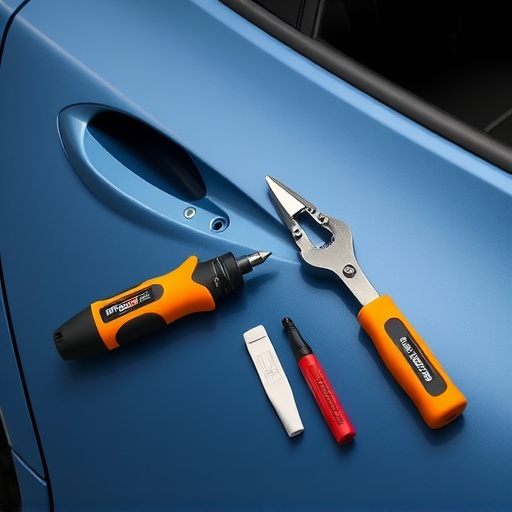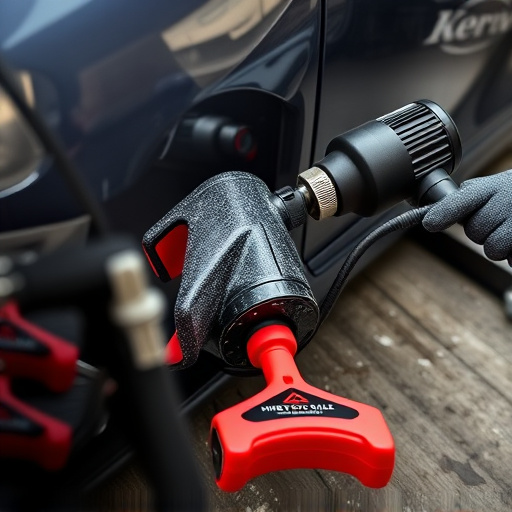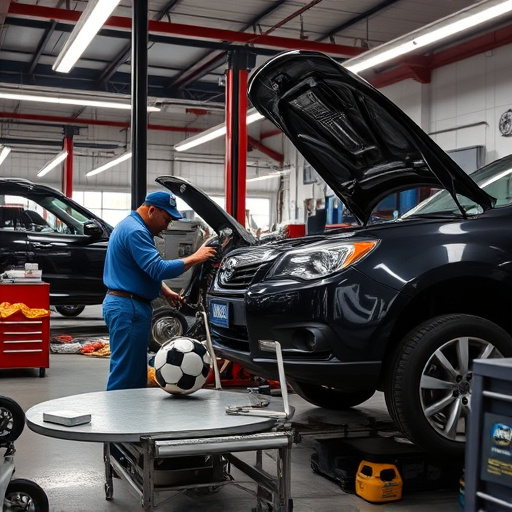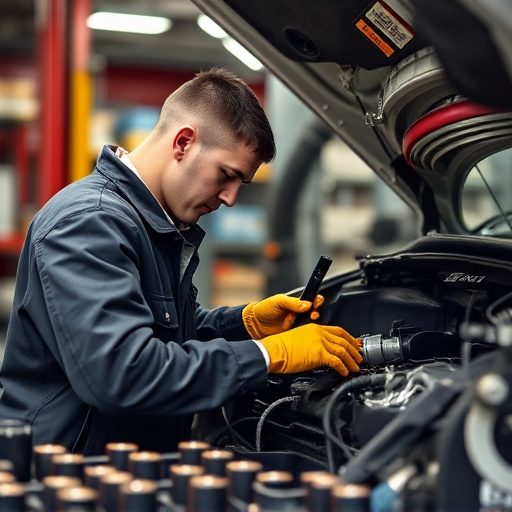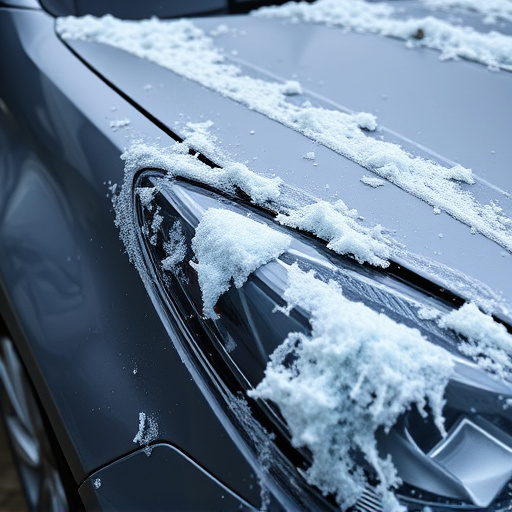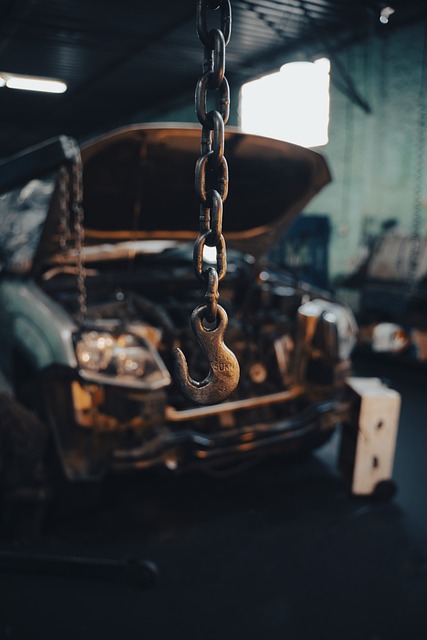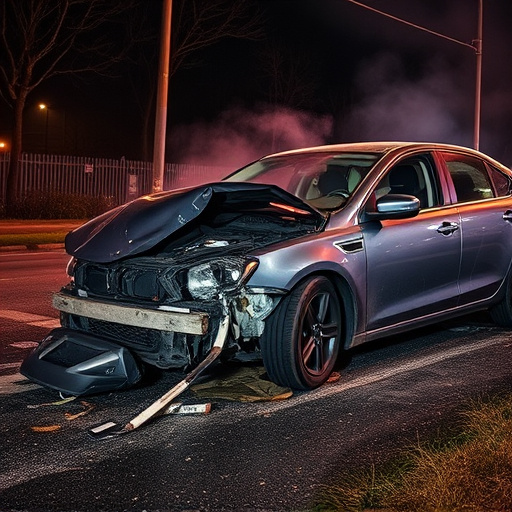Auto collision repair shops prioritize hands-on training, combining theoretical learning with practical workshops, simulations, and guidance from experienced mentors. Structured programs, often partnered with industry associations or educational institutions, focus on foundational automotive knowledge and specialized skills like panel replacement, body structuring, and paint technology. Continuous learning through advanced courses and certifications is crucial for technicians to stay competitive and advance their careers in this demanding field.
In the dynamic realm of auto collision repair, technicians play a pivotal role in restoring vehicles to their pre-accident condition. This article explores the intricate training process within collision repair shops, focusing on how aspiring professionals learn the ropes. From understanding foundational skills to mastering hands-on techniques and pursuing continuous learning, we delve into the key stages of education that shape proficient auto collision repair technicians.
- Understanding the Training Process in Auto Collision Repair Shops
- Hands-on Training: Practice Makes Perfect
- Continuous Learning and Certification for Career Growth
Understanding the Training Process in Auto Collision Repair Shops

In auto collision repair shops, training is a meticulous process designed to equip technicians with the skills and knowledge required to handle various vehicle damage scenarios. This involves a combination of theoretical learning and hands-on practice, tailored to keep up with evolving vehicle technologies and repair methodologies. The training process begins with foundational courses covering automotive fundamentals, such as engine mechanics, electrical systems, and safety protocols. As technicians gain experience, they progress to more specialized modules focused on specific aspects of collision repair, including panel replacement, body structuring, and paint technology.
The learning environment in these shops is dynamic, often involving interactive workshops, computer-aided training simulations, and guidance from experienced mentors. Many reputable auto collision repair centers also partner with industry associations or educational institutions to offer structured programs, ensuring that technicians receive comprehensive instruction aligned with industry standards. This commitment to training not only enhances the quality of auto repair services but also contributes to the career development of skilled professionals in the field, fostering a culture of excellence within collision repair centers.
Hands-on Training: Practice Makes Perfect

In the dynamic world of auto collision repair shops, hands-on training is the cornerstone of a technician’s education. This immersive learning approach allows future professionals to gain practical experience in a controlled environment before stepping into real-world scenarios at a vehicle body shop or collision repair center. By practicing car scratch repair and other intricate tasks, technicians hone their skills, ensuring precision and efficiency in every fix.
The mantra “practice makes perfect” resonates deeply here. Each hour spent refining techniques on mock-ups or actual damaged vehicles brings them closer to mastery. This dedication to hands-on training not only prepares them for the challenges they’ll face but also instills a commitment to quality that’s essential in the highly competitive collision repair industry.
Continuous Learning and Certification for Career Growth
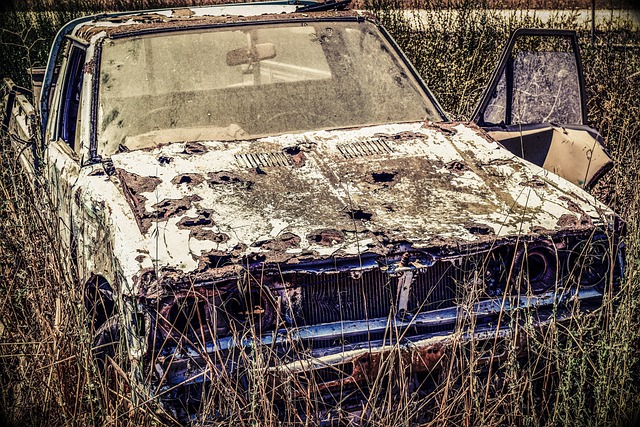
In the dynamic field of auto collision repair, technicians must embrace continuous learning to stay ahead. The ever-evolving nature of automotive technology demands that professionals keep up with new techniques and tools. Many reputable auto collision repair shops offer ongoing training programs to ensure their technicians are equipped with the latest skills. These programs often include workshops on advanced car body repair, precision measurement techniques, and state-of-the-art equipment usage. By participating in such continuous learning opportunities, technicians can enhance their careers and become highly sought-after professionals within the industry.
Certification plays a pivotal role in career growth for auto collision repair specialists. Reputable shops collaborate with certified training institutions to provide comprehensive courses that lead to recognized certifications. These certifications not only validate a technician’s expertise but also open doors to better job opportunities, including positions at specialized vehicle repair centers or even management roles within the shop itself. Continuous learning and certification are key strategies for anyone aiming to excel in the competitive world of auto collision repair shops and advance their careers in this field.
In the dynamic field of auto collision repair, technicians play a pivotal role in restoring vehicles to their pre-accident condition. The training process in these shops is a multifaceted approach that combines theoretical knowledge with extensive hands-on practice. By emphasizing continuous learning and certification, collision repair technicians not only enhance their skills but also contribute to the overall quality and safety of the automotive industry. This holistic training ensures that they are well-equipped to tackle the evolving challenges presented by modern vehicle technology, making them indispensable assets in any auto collision repair shop.


